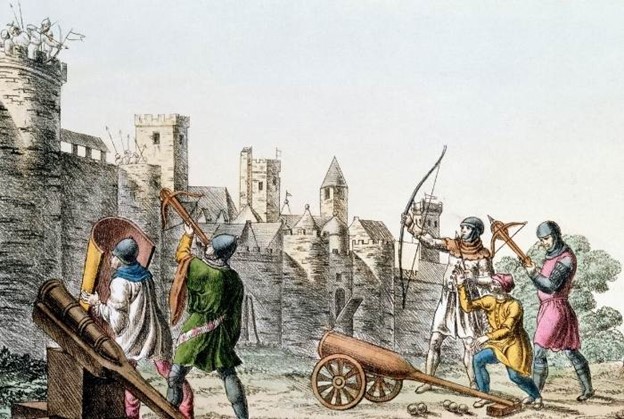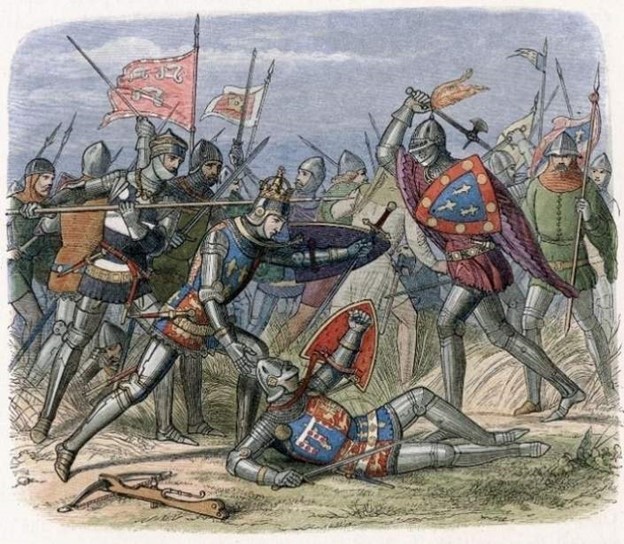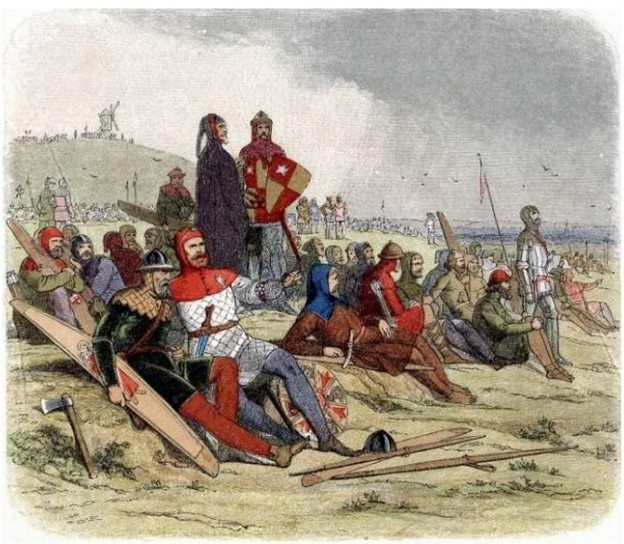
The succession of the conflicts known as the Hundred Years’ War ended on October 19, 1453, when the English-occupied city of Bordeaux surrendered, leaving Calais as the last English possession in France. As historians do not fail to point out, it was not a single war that lasted a hundred years, but a succession of wars on the same theme.
Apart from naval battles and coastal raids, this “100-year war” was fought entirely on French soil and is believed to have halved France’s population.
The English trade in wool and linen to Flanders became too profitable, so it was a significant factor in starting the war, but the battle focused on the French possessions of the kings of England and their claim to be kings of France.
When Charles IV, the last king of the Capetian dynasty, died in 1328, his closest male relative was his nephew Edward III of England, whose mother was Carol’s sister. However, the French nobility quickly accepted Philip of Valois as King Philip VI, not because Edward III’s claim was unfounded, but because he was English and unfit to rule over the French. Edward III was only fifteen years old, had just been appointed king in England under dubious circumstances, and the French nobility believed that he should solve his problems in London and then claim the French throne.
Edward paid tribute to Philip for the regions of Aquitaine and Ponthieu in 1329, but Philip confiscated them in 1337 to punish him for sheltering his cousin and enemy, Robert de Artois. This was practically the starting point of the Hundred Years’ War. In this war the English achieved brilliant victories at Crécy in 1346, Poitiers in 1356 and Agincourt in 1415.
Drawing illustrating the battle of Crécy in 1346
The culmination of the English victories came when Henry V took control of Paris, Normandy and much of northern France, married the daughter of Charles VI, and forced the French king to accept him as regent of France and as successor to the throne.
Henry and Carol both died in 1422. Charles VII was the one who became the Dolphin of France (the title given to the heir to the throne of France), by self-proclamation, with the support of the famous Joan of Arc. Henry VI was the only English king to be crowned King of France in France – at the age of ten in Paris in 1431 – but gradually the territory across the Channel came out of British control. In 1436, the English lost Paris and by 1450, the French had recovered Normandy.
In 1451, the French conquered the province of Aquitaine and recaptured the Bordeaux area, which had been under English occupation for three hundred years, during which time there was a constant trade in wine with England. A deputation sailed to England in 1452 to ask for help from Henry VI. He sent a 3000-man army, led by John Talbot. He arrived in October and removed the French garrison.
The British recaptured most of western Gascony, but in July 1453 a French army defeated Talbot at Castillon, killing him.
When it was clear that no help would come from England, Bordeaux surrendered in October, and Calais remained the last area under English rule in France. This marks the end of the 100-year war.
The “War of the Two Roses” that started shortly (1455) kept the English busy. In 1475 an English army landed on French soil again, but Louis XI bribed it and returned to England. The French recaptured Calais in 1558.
The long war strongly strengthened the sense of national identity in both England and France, and created a mutual antagonism that has lasted ever since. England began to develop its parliamentary democracy and an empire that no longer interfered with Europe. However, the English kings continued to officially claim to be the kings of France; The last British monarch to claim the title of “King of France” was George III.






